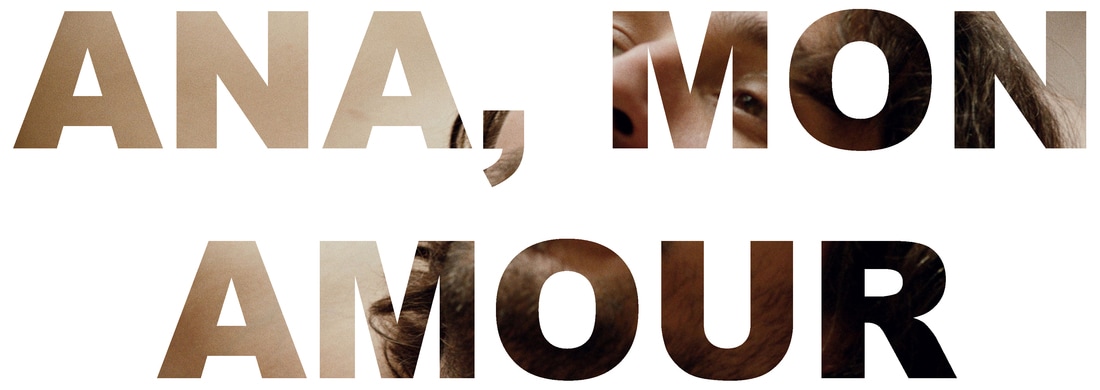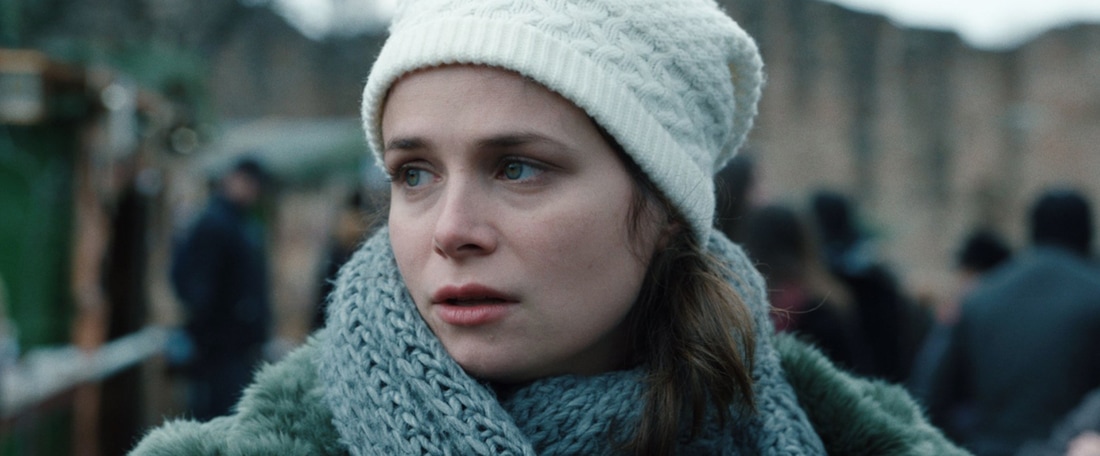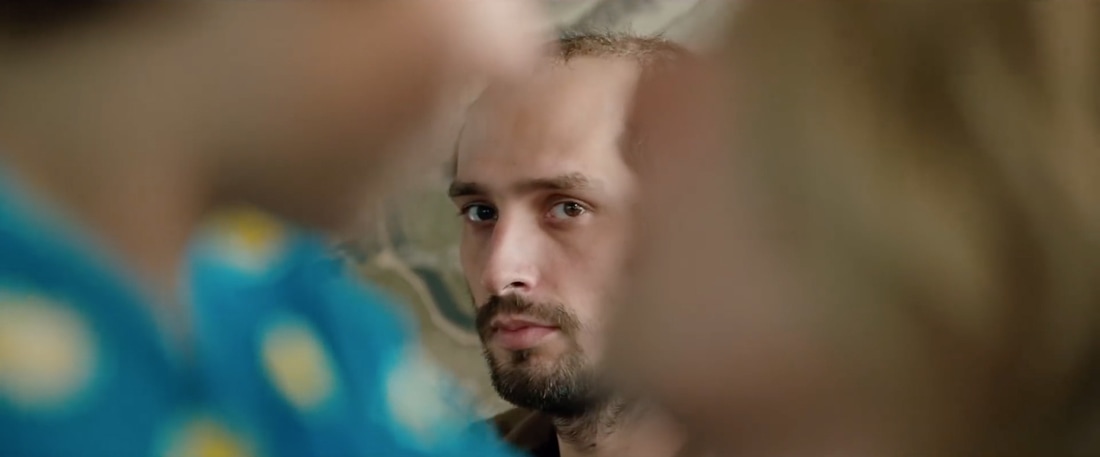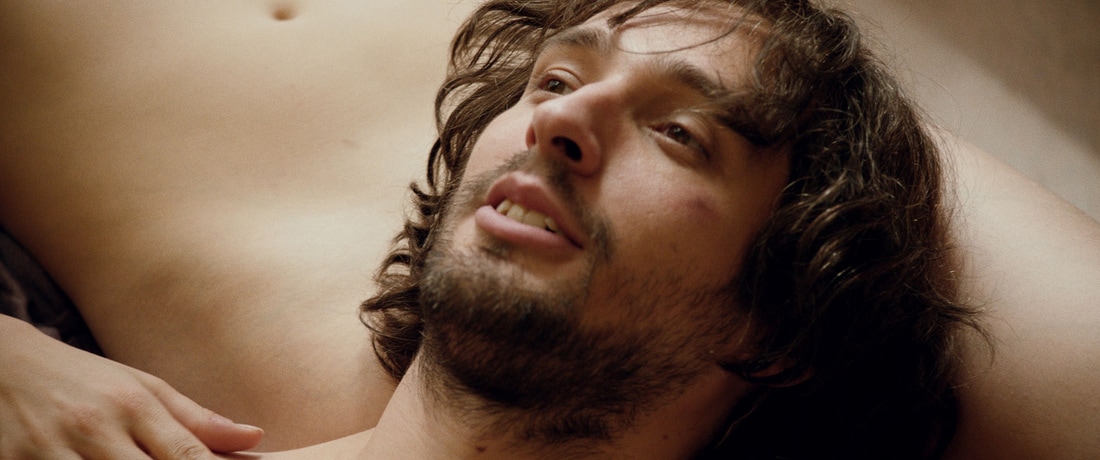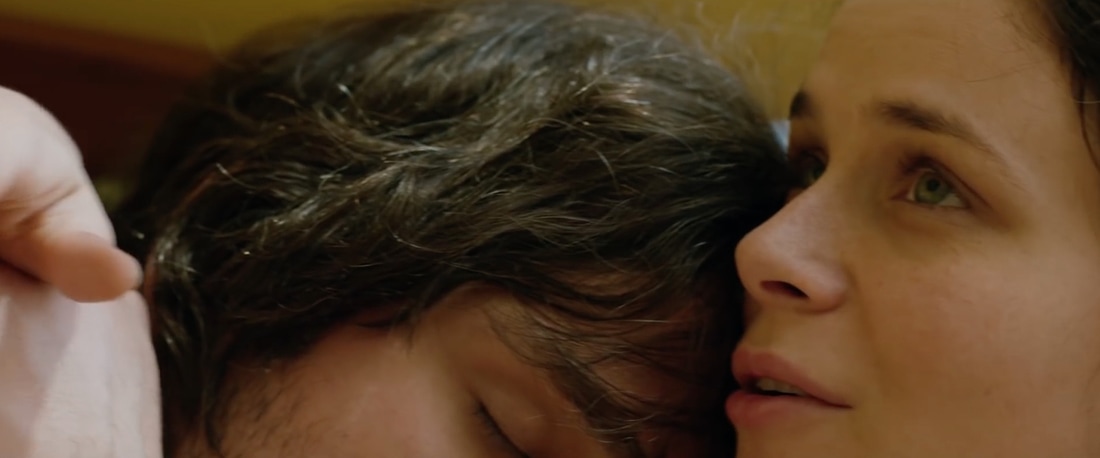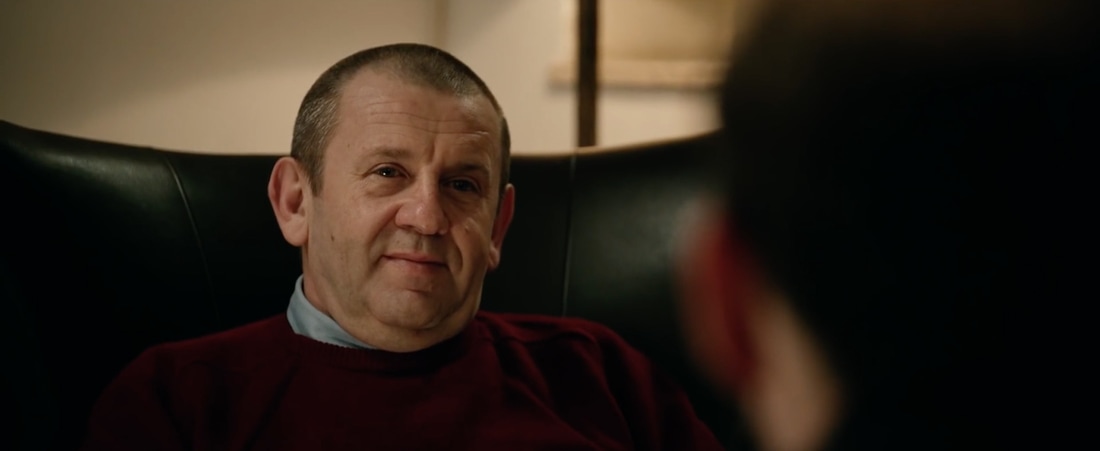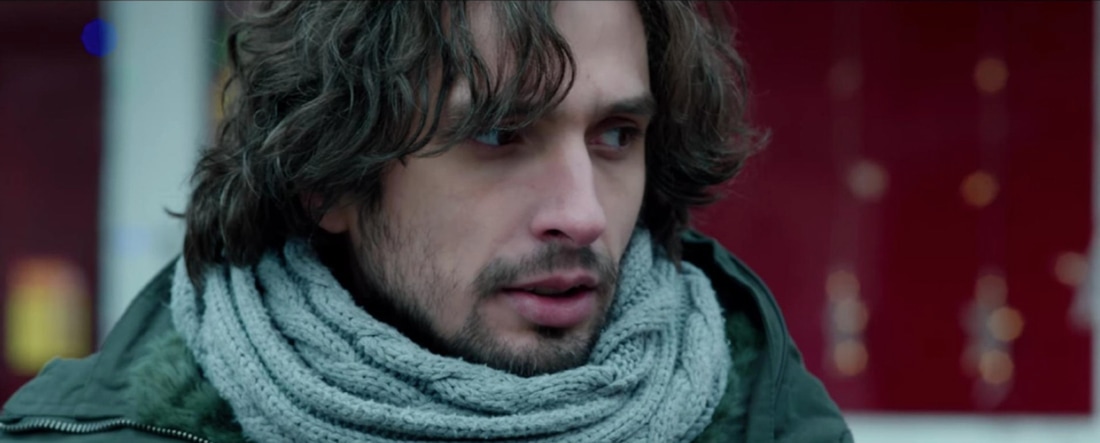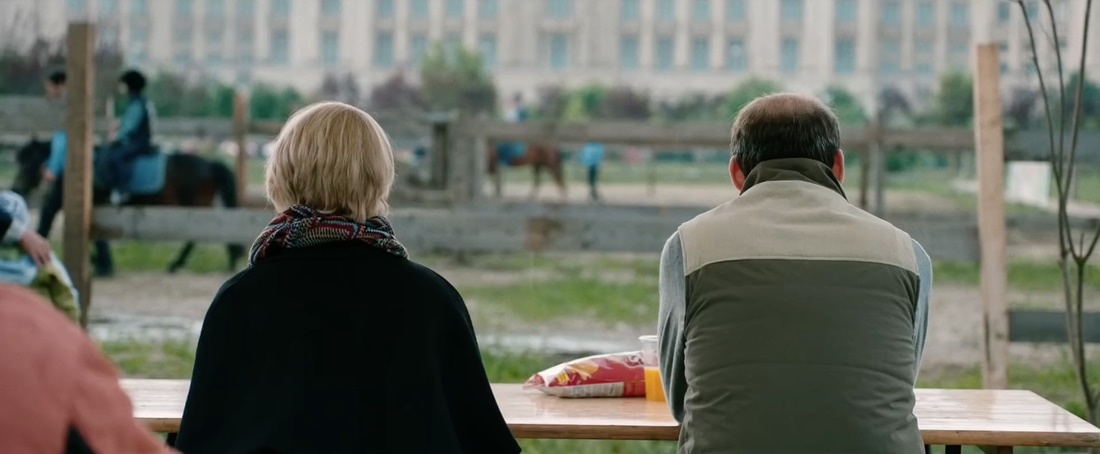|
★★★½☆
28 May 2017
A movie review of ANA, MON AMOUR. |
“You’re the most horrible person I’ve met,” Toma (Mircea Postelnicu)
Is this film a metaphor for marriage or actual marriage? 130-minutes of non-stop emotional sadomasochism is not easy to sit through. There is too little respite, and as a result caring for the plights of the couple ebbs away. However, if you want to be dragged through the wringer, ANA, MON AMOUR is for you. The story fascinates as we wonder at what point would we cut our losses. Investing this much of your soul into a relationship, and have it sunder, must be galling. One might equate it to being sent to prison for a crime you did not commit. Years are robbed. For those deciding on long-term commitment, REVOLUTIONARY ROAD is a must-read and ANA, MON AMOUR should also be on your homework list. As Benjamin Franklin stated, “Keep your eyes wide open before marriage, half shut afterwards.”
Is this film a metaphor for marriage or actual marriage? 130-minutes of non-stop emotional sadomasochism is not easy to sit through. There is too little respite, and as a result caring for the plights of the couple ebbs away. However, if you want to be dragged through the wringer, ANA, MON AMOUR is for you. The story fascinates as we wonder at what point would we cut our losses. Investing this much of your soul into a relationship, and have it sunder, must be galling. One might equate it to being sent to prison for a crime you did not commit. Years are robbed. For those deciding on long-term commitment, REVOLUTIONARY ROAD is a must-read and ANA, MON AMOUR should also be on your homework list. As Benjamin Franklin stated, “Keep your eyes wide open before marriage, half shut afterwards.”
University students, studying literature, Toma (Mircea Postelnicu) and Ana (Diana Cavallioti) are a good-looking couple. Their intimacy is sensual and blush-inducing. Time is chopped up for our consumption, and as they enter middle age their beauty degenerates far faster than expected. Is it too simplistic to say their surface reflects their turmoil?
We are not just the product of our parents, though their presence and absence is arguably the strongest influence. Toma and Ana react understandably to their progenitors. Ana is suffering from mental illness. Is this a result of her disturbing stepfather? Why did her mother not protect her? Ana’s biological father was a defector during the Ceauşescu totalitarian regime. This probably brought much shame. Now he would be vindicated, bar abandoning his family. Toma’s parents don’t love each other, and pater is a bully with a temper. Both sets of parents do not particularly love their offspring. If a rock of unconditional love in your family is absent, individuals can seek it out in romantic ardour - and that might create precarious reliance. Co-dependency is the crux of ANA, MON AMOUR.
Like François Ozon’s 5X2, as the story is digested it feels one-sided, but then you realise it isn’t. Frustration with each oscillates. It is why BREAKING BAD is so engaging, because cause and effect is so complicated (except if Walter White had access to universal healthcare none of it would have unfolded as it did). The title here does not help. Is the female lead an antagonist, rather than another protagonist? We see Toma discussing with third parties his life, but the same is not offered for her inner workings. We even see him with a psychoanalyst (Adrian Titieni – GRADUATION) and a priest (Vlad Ivanov – SNOWPIERCER).
Toma alienates himself through the energy that Ana needs, and then paranoia at her slipping away, but we wonder if that is merely an excuse for isolation. He even loses his job and best friend. Does he like being depended on? Is it about power? As she gets better she doesn’t require a crutch, but is also ungrateful. Can we be blamed for falling out of love?
Like CHILD’S POSE, director Călin Peter Netzer’s previous film, ANA, MON AMOUR is almost a very good film.

